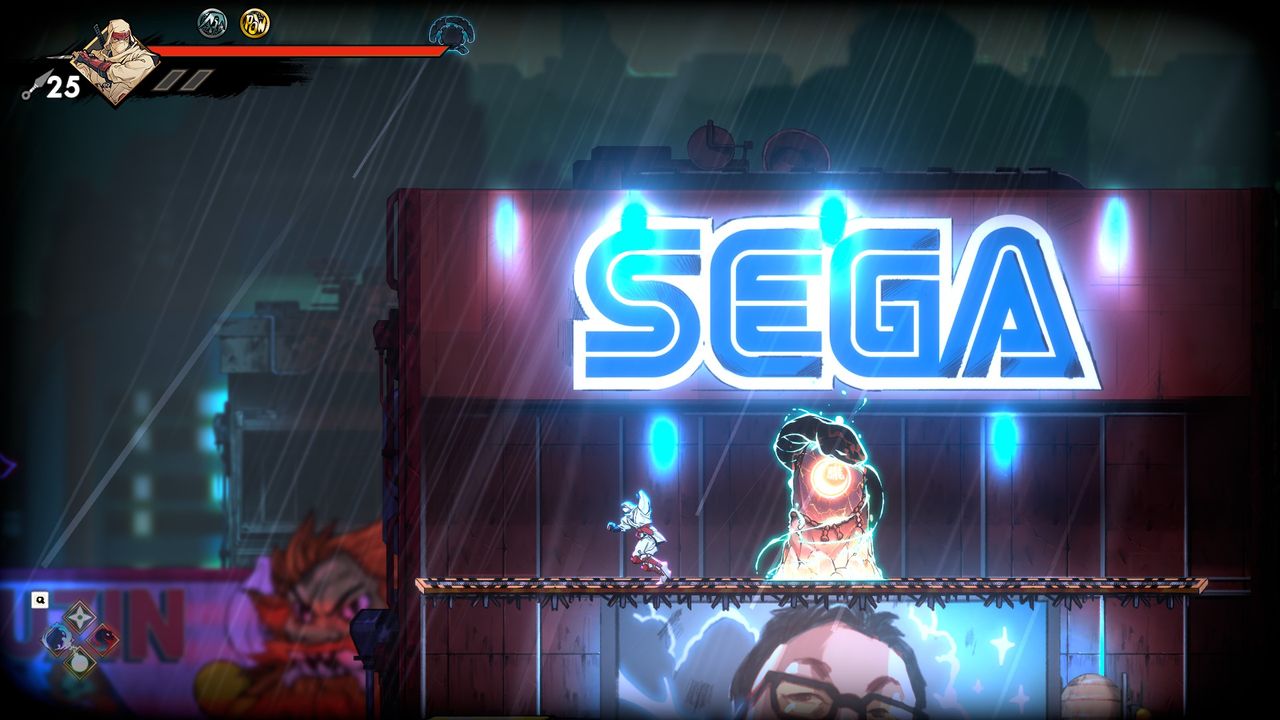
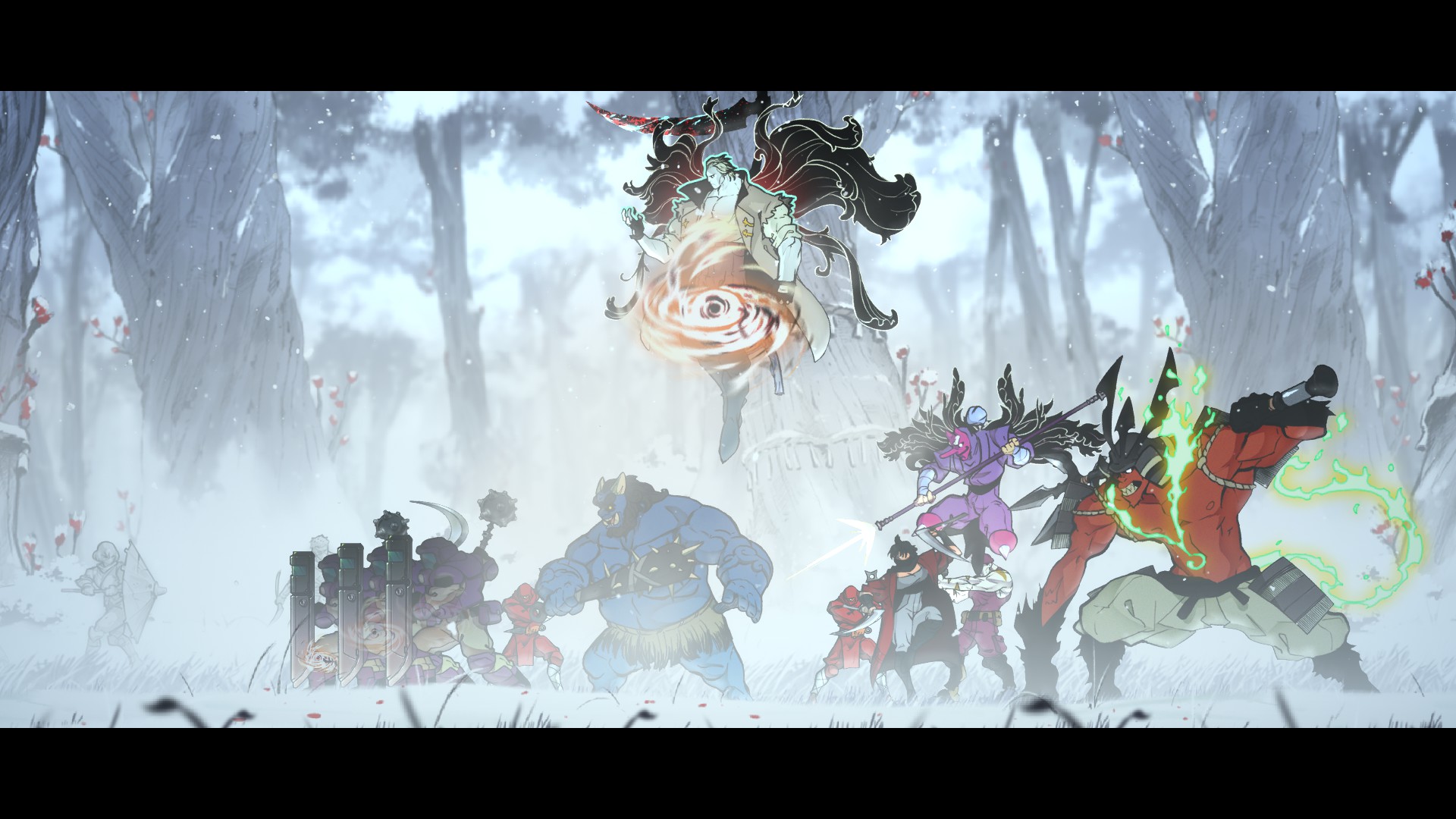
Publisher: Sega
Developer: Lizardcube
Release date: 29 August
Format: PC (tested), PS5, PS4, Xbox Series X/S, Xbox One, Switch
Platform: Unity
Last month I reviewed Ninja Gaiden: Ragebound and confidently called it the new high bar for a ninja action game. In hindsight, that was premature of me because I shouldn't have underestimated Lizardcube.
The Paris-based studio has already proven itself with its delicious remake of Wonder Boy: The Dragon's Trap followed by the excellent revival of Streets of Rage with a new entry in 16 years, both employing a beautiful hand-drawn art style. But Shinobi: Art of Vengeance is perhaps its biggest challenge to date.
In some way, there's even more to prove, because unlike Ninja Gaiden, the Shinobi series languished in its transition to 3D, spawning two so-so PS2 games with different protagonists before fading into obscurity.
The memory of the original side-scrollers have nonetheless been kept alive by their inclusion in retro collections, including the Mega Drive games available on the Nintendo Switch Online service, and it's these games that Art of Vengeance follows directly from, acting as a sequel to 1993's Shinobi 3 and returning with original ninja master Joe Musashi (also see our guides to the best Nintendo Switch 2 games and the best retro consoles).
Paint it red
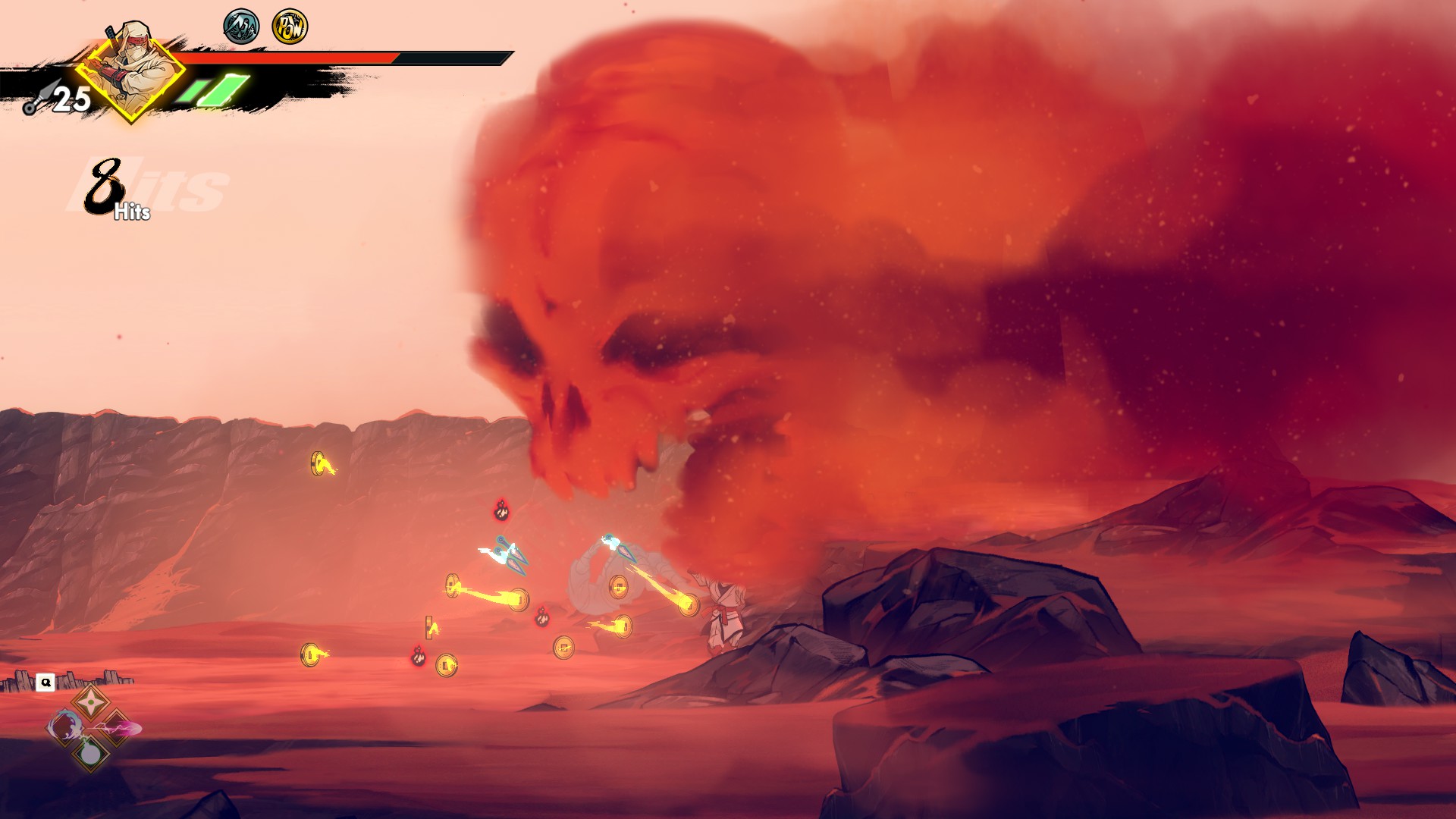
Instead of just licensing out its IP, Sega is actually much more directly involved with Art of Vengeance. Contrary to assumptions, that doesn't mean Lizardcube has been brought on board solely for the art direction as the team is also credited in other areas, including game design, programming and story.
Art has arguably been synonymous with Shinobi since the very first game featured pixel art replicas of Andy Warhol's iconic Marylin paintings (sadly a detail missing from the Sega Ages release on the Switch), so it's undeniably the art that immediately draws you in here.
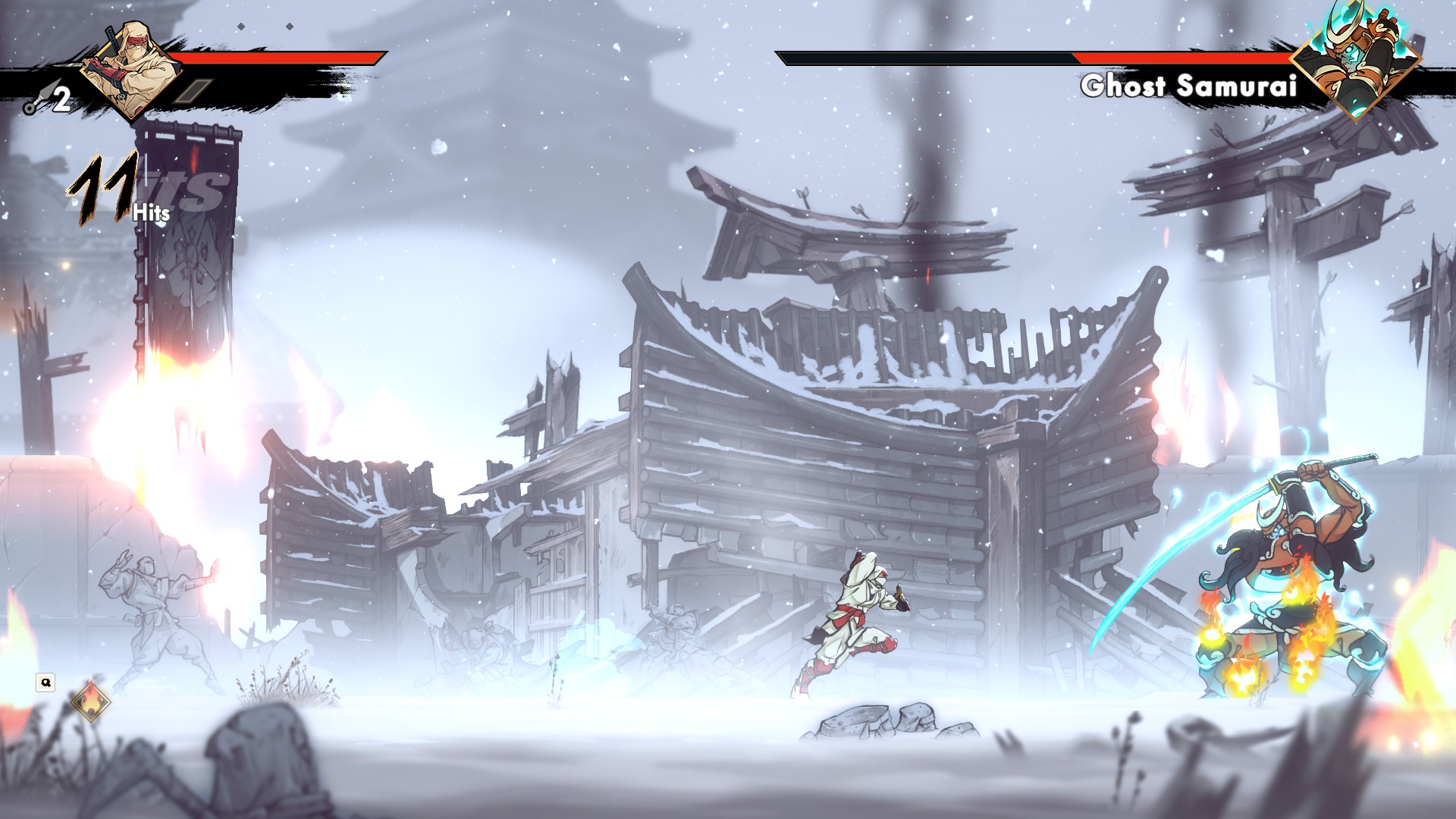
It's somehow even more sumptuous than what Lizardcube has done in the past, its hand-drawn aesthetic employing a more painterly than cartoony tone. Take the first mission when Musashi is running through a bamboo forest and then into a white space that almost feels like a blank canvas until you realise it's ash white from the flames of his village while he finds his clan has been to stone by the game's big bad.
I can also see why Sega is involved directly with this revival, as it's surely been important to ensure that the game's Japanese aesthetics are authentically captured - besides ninjas, there's also yakuza and yokai, while Musashi can even ride a white wolf that has an uncanny resemblance to Okami's Amaterasu.
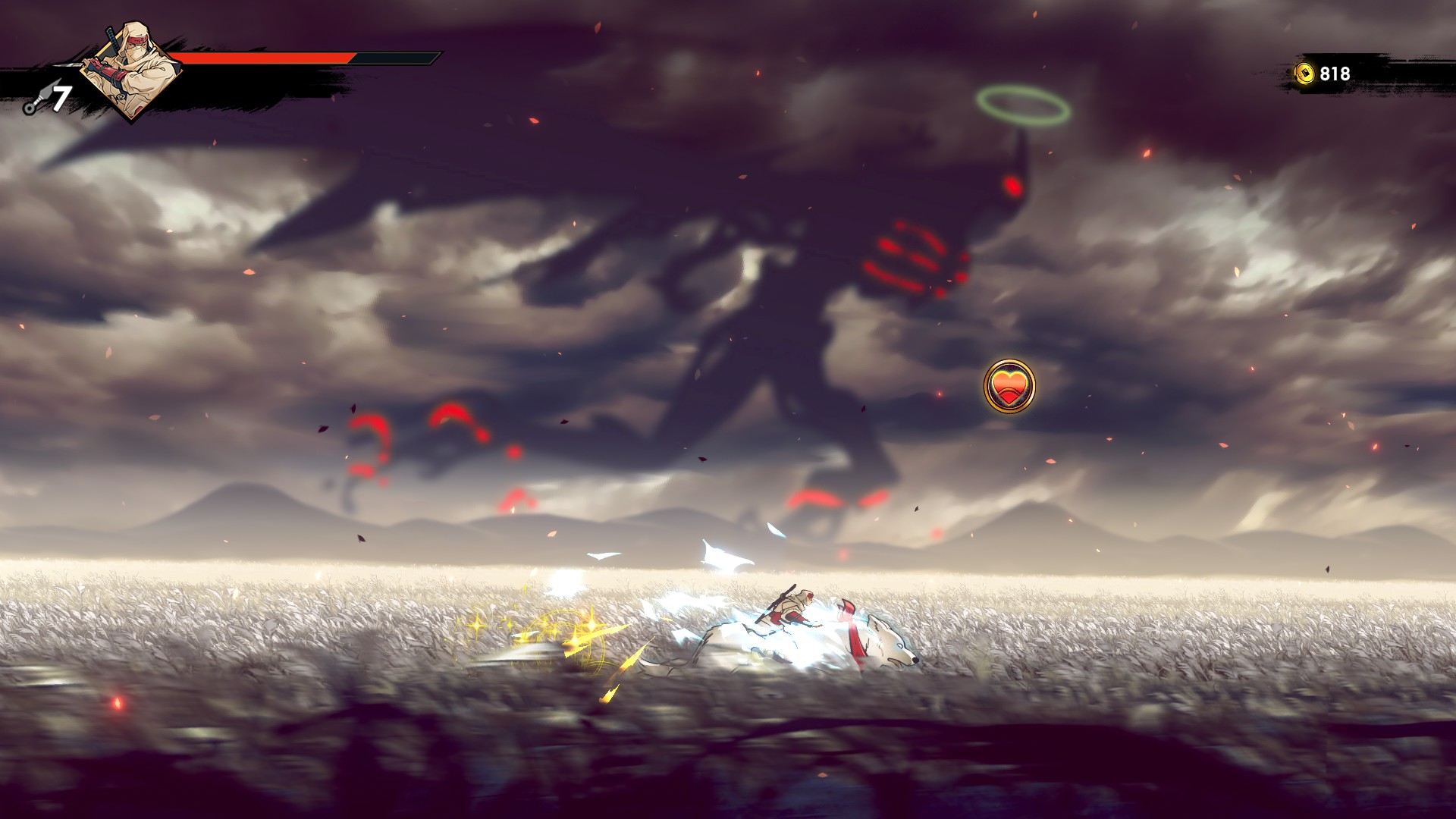
It's perhaps how legendary Sega composer Yuzo Koshiro has also contributed a few tracks, though not to take away credit from main composer Tee Lopes (Sonic Mania). Art of Vengeance hasn't skimped on production values, from the lavish hand-painted art for its cutscenes as well as voice-acting in both English and Japanese.
Ninja-vania
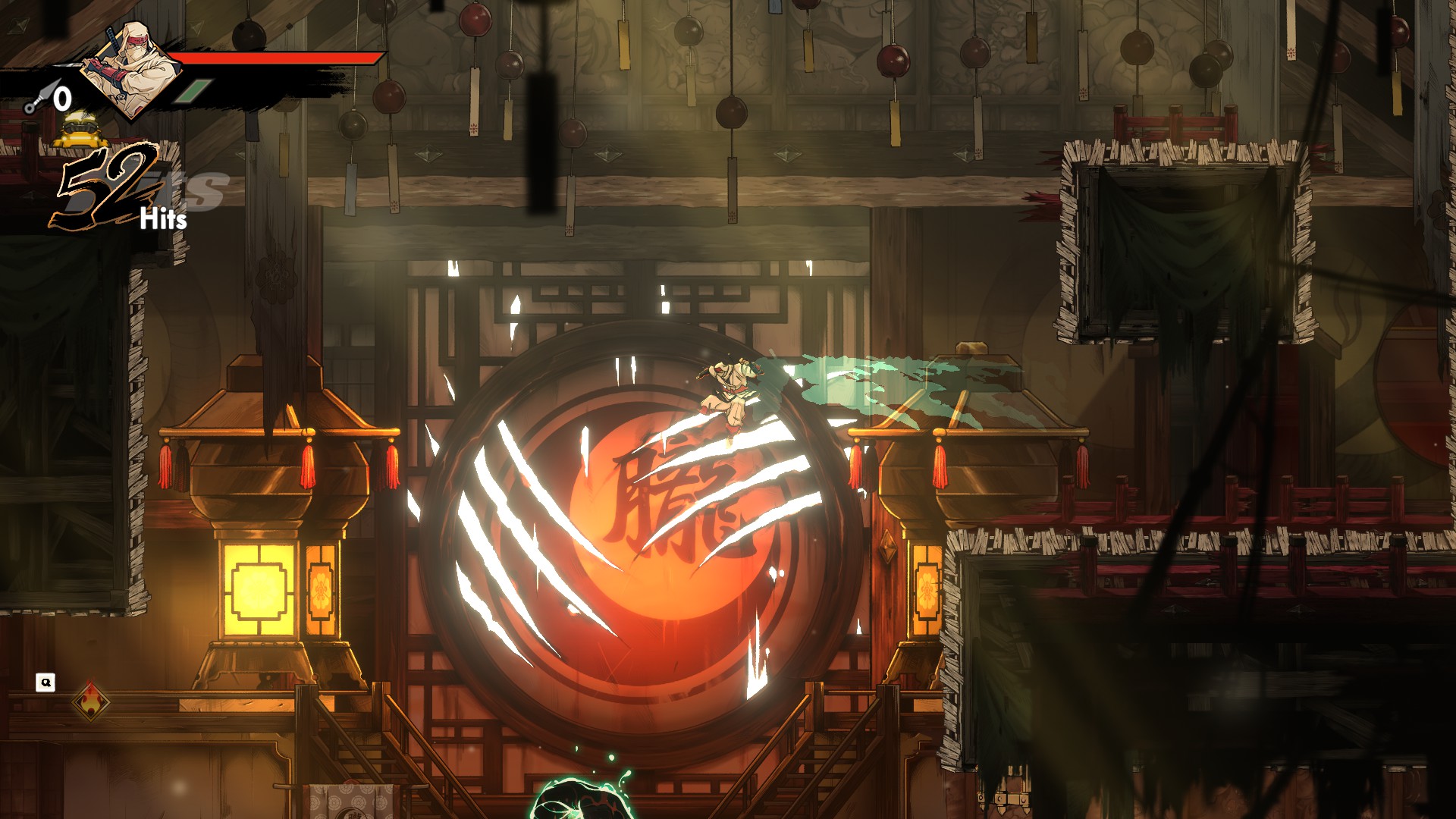
Much like Ninja Gaiden: Ragebound, Art of Vengeance's side-scrolling traversal and combat is far more fluid than its 8-bit and 16-bit predecessors. Where it goes further is how much more satisfying the combat is.
The way you can chain combos as you juggle enemies from learning new moves, while also building up a gauge to unleash special Ninpo arts, including a very handy parry-counter, is almost what you'd expect if PlatinumGames had made a 2D action game.
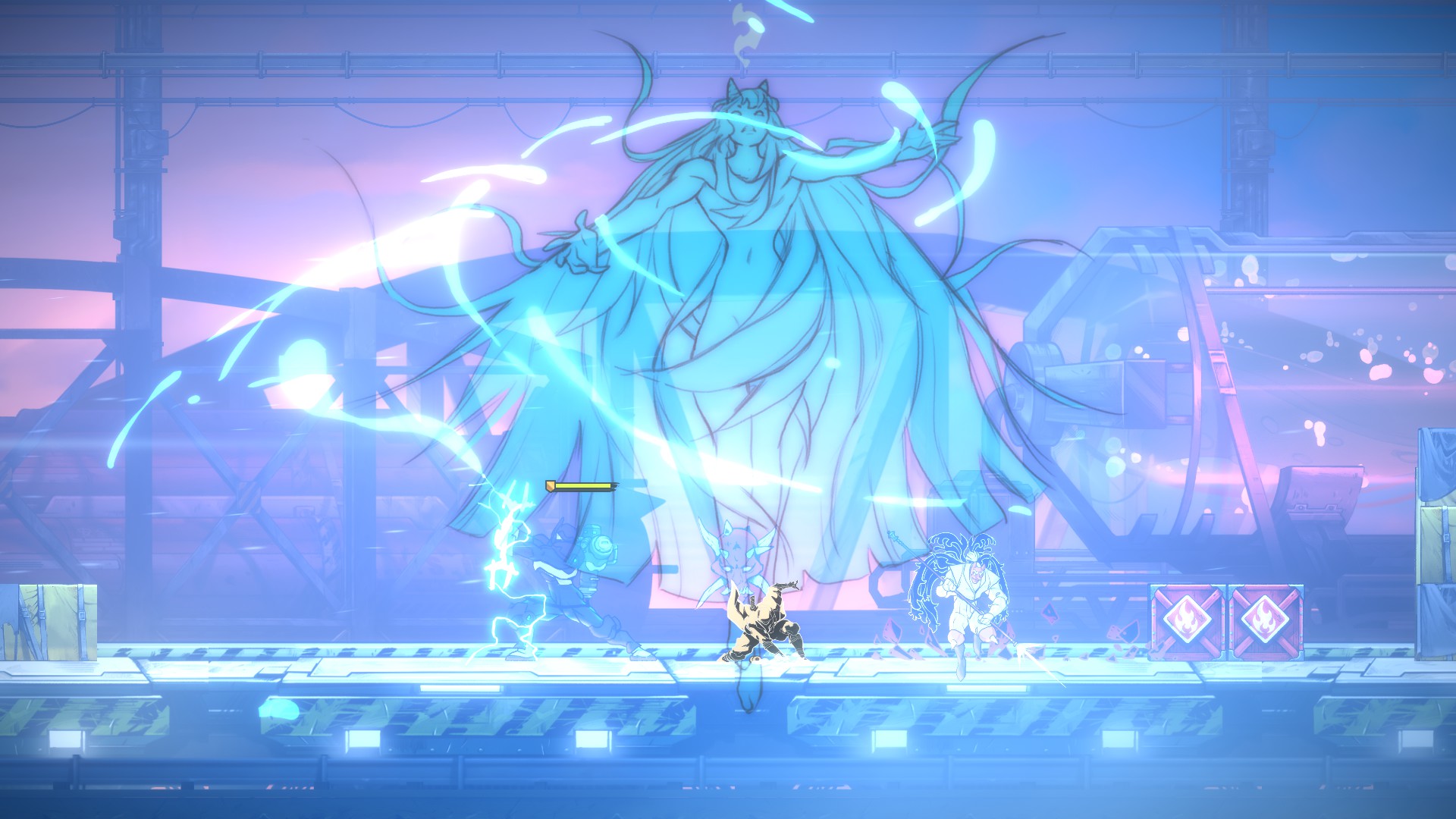
It's even possible to instantly finish off an enemy if you manage to deal repeated attacks that fill up their execution gauge. Admittedly, I almost always got an enemy down to their last slither of health by the time they were executable anyway, while the opportunity to chain multiple executions promised by the initial tutorial rarely materialised if at all.
Still, it looks stylish as hell when you pull it off, all the more so when you finish a boss fight this way. If there's any criticism, it's that the fast-paced action meant that I sometimes lost sight of where Musashi was, especially in moments when you're fixed to a part of the map as enemies spawn left and right.
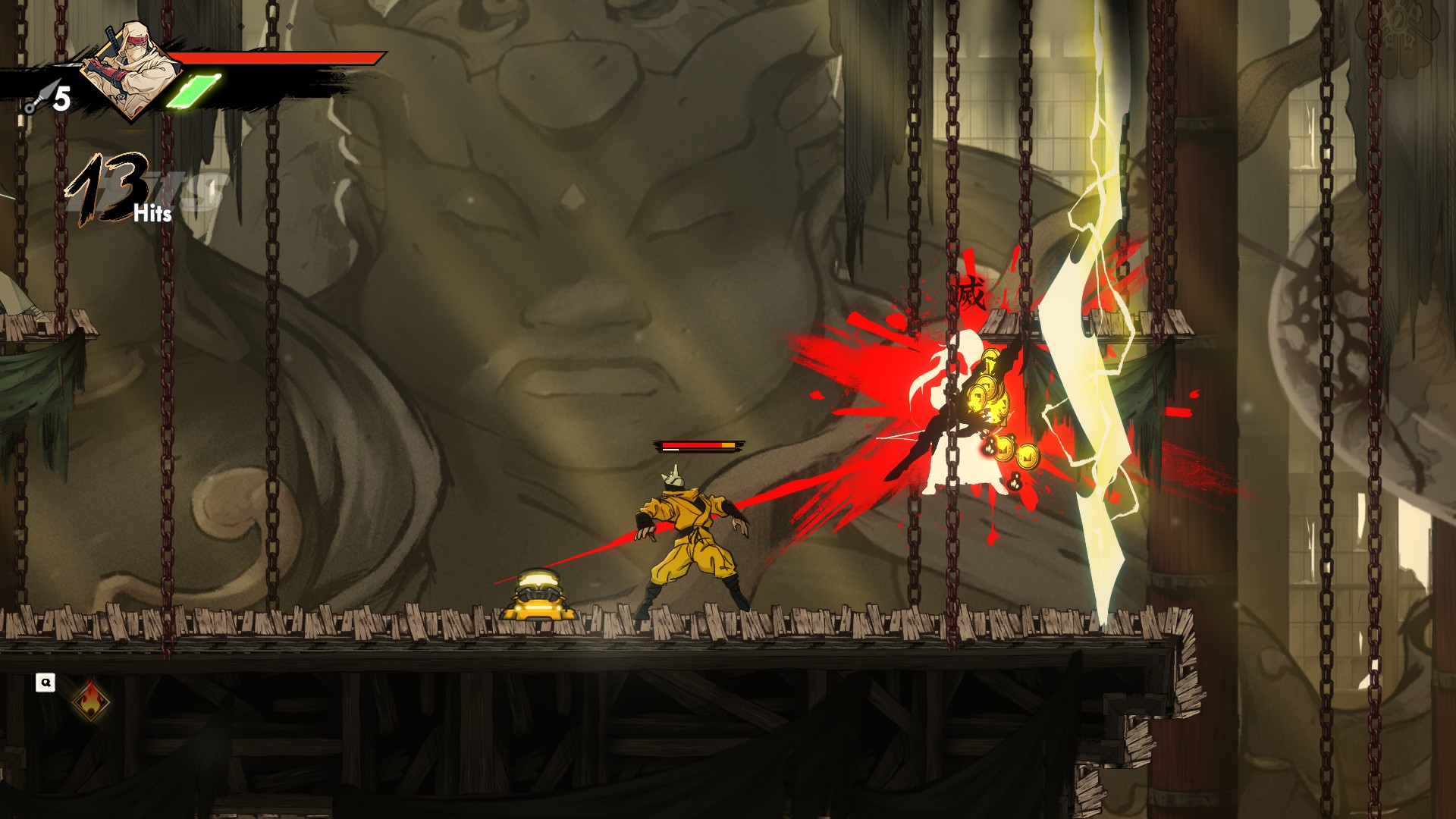
Yet while ostensibly a mission-based action game, with a stunning variety of locations that include a village illuminated with lanterns to a neon-lit cityscape decorated with Sega billboards, it's actually got a Metroidvania-lite structure. As you unlock new traversal tools, like a grappling hook or the ability to drop-smash through certain floor, you'll be able to access paths that were inaccessible to you the first time around.
It's a good incentive for returning to earlier levels, and since you'd have found these new tools later when your ninja prowess should be more confident, the challenges in these optional routes also scale accordingly.
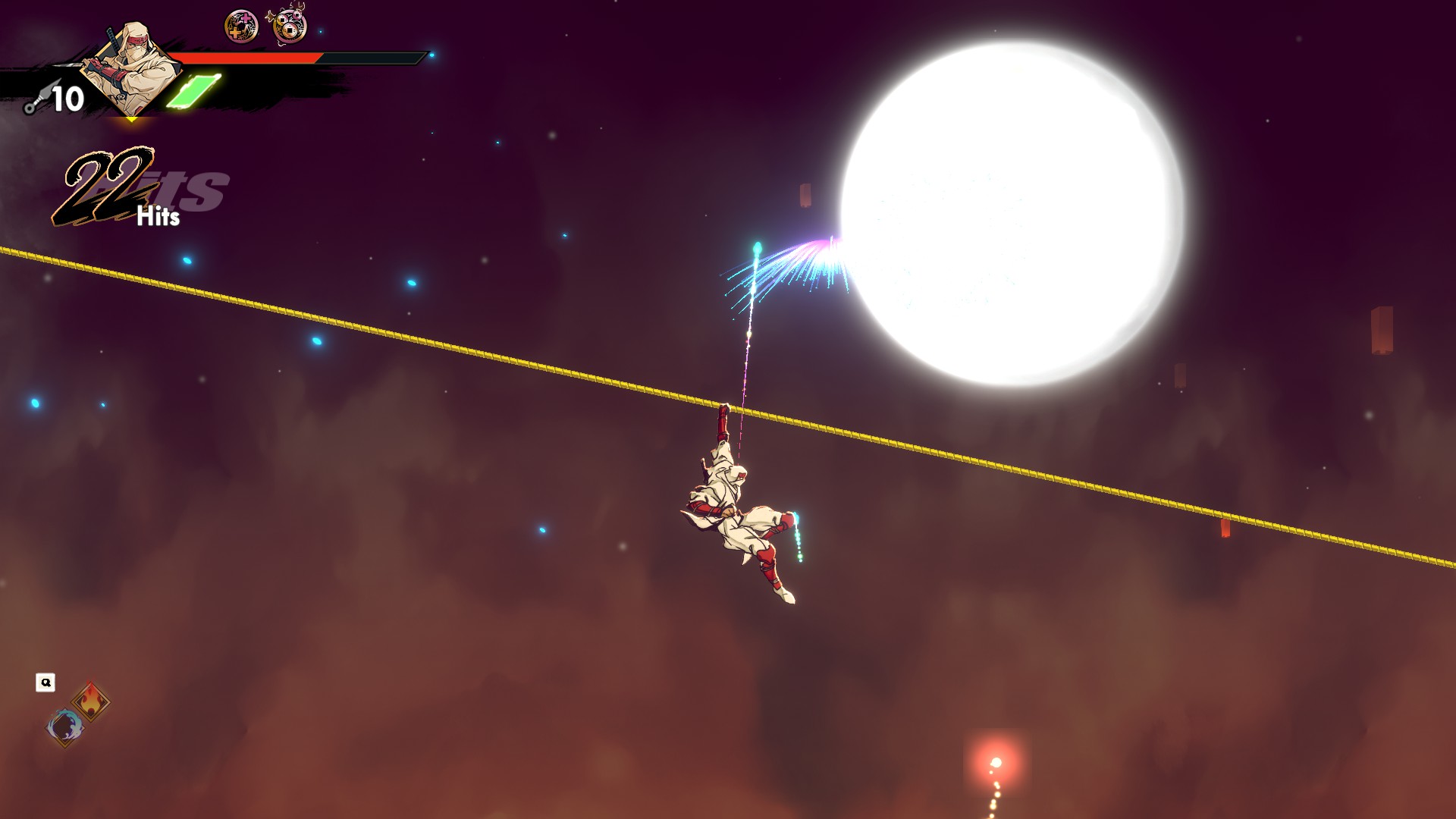
Later levels also have a more non-linear structure as you might be tasked with finding switches or destroying multiple targets in order to open a main route. This does make some stages a little more bloated, especially as I found the checkpointing in these moments a bit stingier.
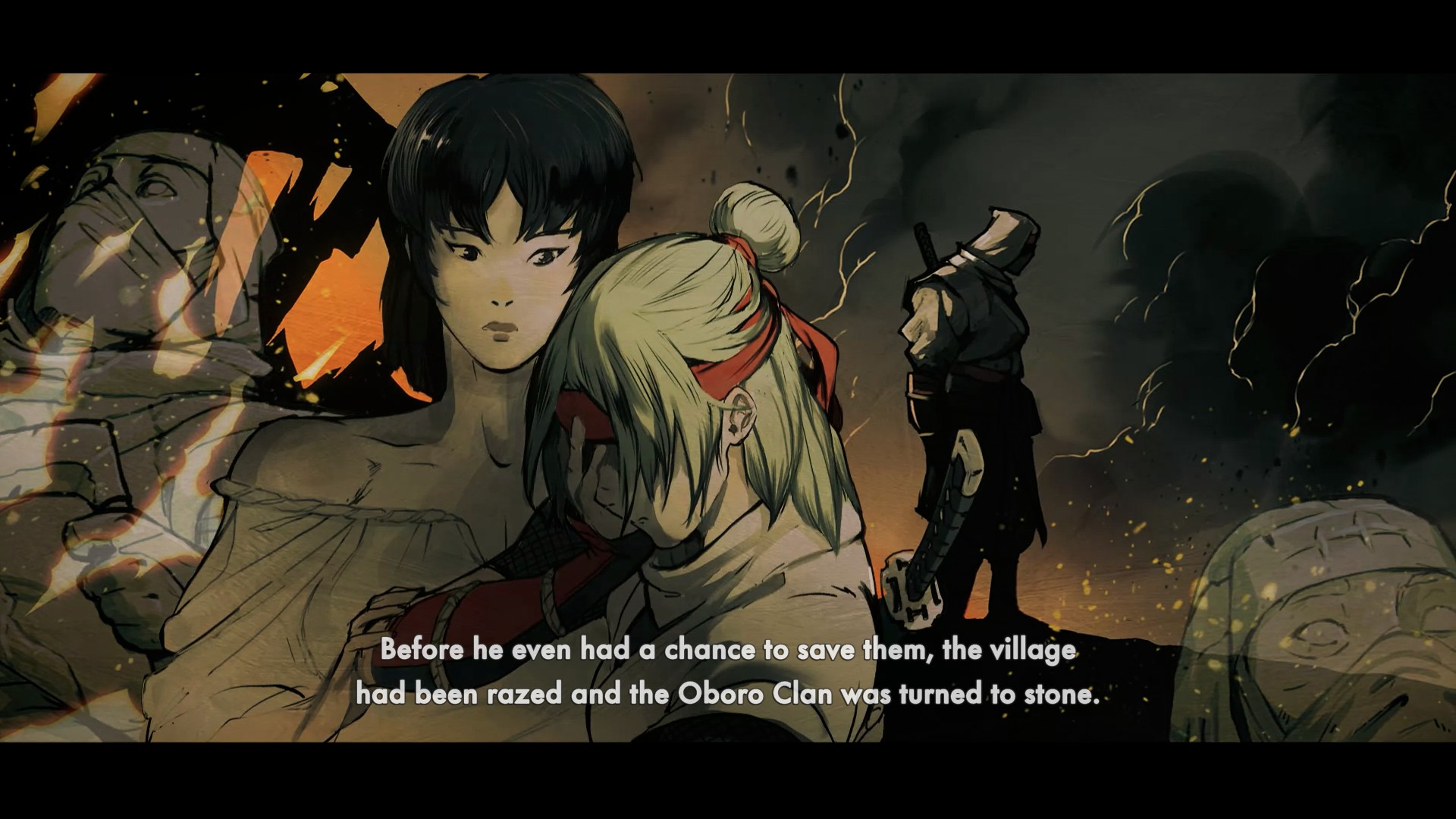
It's nonetheless balanced with some more linear chase sequences, such as where you're in a submarine that suddenly starts flooding as you hurry to higher levels while waves of water rush after you. Whether you're after a tight linear action game or a more non-linear Metroidvania, Art of Vengeance manages to be the best of both.
Also see my Resident Evil Requiem first impressions.







